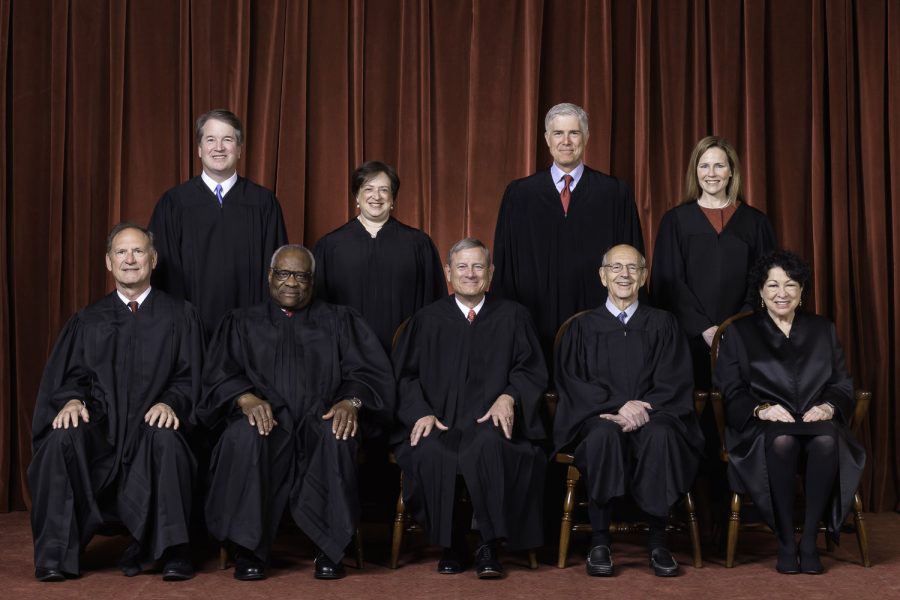The need-to-know on Roe
A draft decision written by Justice Samuel Alito to overturn Roe v. Wade was leaked which could leave abortion rights up to the states.
The 49-year-old precedent of Roe v. Wade may be overturned, according to a leaked Supreme Court draft decision, shifting the legality of abortions in over half of the U.S. states and possibly affecting other precedents related to the constitutional right to privacy.
Roe v. Wade, a case pursued by a plaintiff, Roe, who sued her local district attorney, Wade, claiming that the right to privacy ensured women the ability to terminate a pregnancy in any way at any time, was accepted for review by the Supreme Court in 1972.
On January 22, 1973, the Supreme Court decided in a 7-2 ruling that state laws criminalizing abortion violated women’s right to privacy under the Due Process Clause of the 14th Amendment which “prohibits states from depriving ‘any person of life, liberty, or property, without due process of the law’” (Consitution Center) . The court attempted to balance women’s right to privacy with state’s rights by allowing restrictions on abortion if the state had a “compelling interest” to prevent abortions (Britannica).
For 49 years, Roe v. Wade has been a cornerstone holding regarding the legality of abortion under the Constitution. However, on May 2, 2022, a Supreme Court draft decision to reverse Roe v. Wade was leaked.
In Justice Samuel Alito’s draft decision, he wrote that Roe must be overturned as, “The Constitution makes no reference to abortion, and no such right is implicitly protected by any constitutional provision” (SCOTUS).
Justice Alito continues his argument by noting that in order to protect rights not explicitly stated in the Constitution, the rights must be “‘deeply rooted in this Nation’s history and tradition’” and “‘implicit in the concept of ordered liberty’” (SCOTUS).
The leaked document is a draft statement and the Court has not conducted a formal vote, meaning there is not yet an official ruling on the overturning of Roe v. Wade.
Despite the overturning being unofficial, the extent of the draft suggests that Justice Alito and his colleagues believe they have enough votes to overturn the decision of Roe.
If the Court continues on its trajectory and reverses the decision of Roe, the Court is not outlawing abortions. Instead, overturning Roe would simply leave the legality of abortion up to states instead of the federal government as it had under Roe. If the draft opinion is confirmed, 26 U.S. states are expected to create laws criminalizing abortion (NY Times).
Beyond the impact overturning Roe could have on abortion access in 26 U.S. states, the reasoning behind the decision could extend to other cases related to the Due Process Clause of the 14th Amendment.
Rights such as homosexual relationships (Lawrence v. Texas), access to contraception (Griswold v. Connecticut), and same-sex marriage (Obergefell v. Hodges) were all upheld by the Court due to the implicit right to privacy under the 14th Amendment’s Due Process Clause, similar to Roe (NPR).









